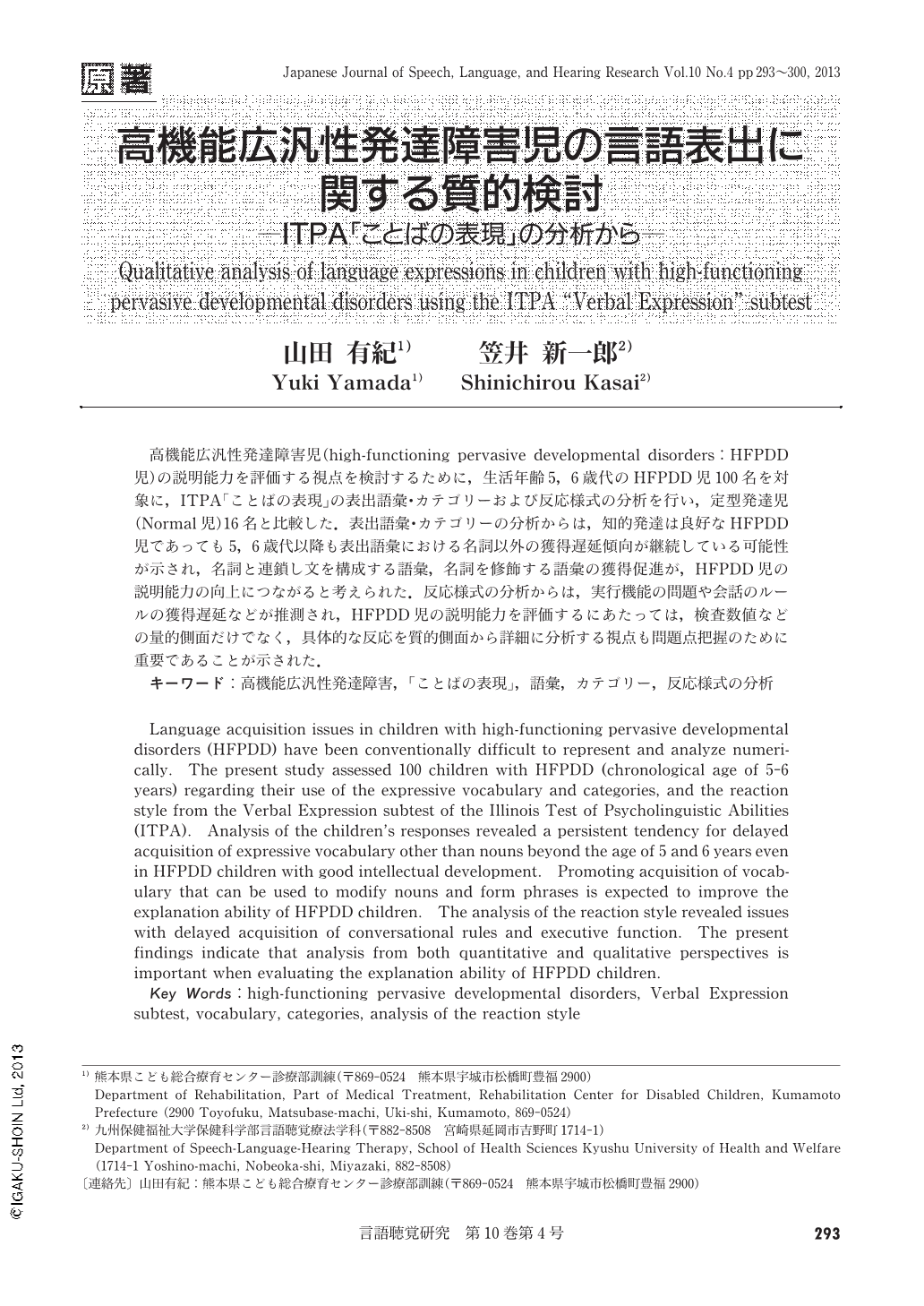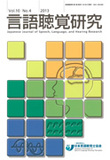Japanese
English
- 有料閲覧
- Abstract 文献概要
- 1ページ目 Look Inside
- 参考文献 Reference
高機能広汎性発達障害児(high-functioning pervasive developmental disorders:HFPDD児)の説明能力を評価する視点を検討するために,生活年齢5,6歳代のHFPDD児100名を対象に,ITPA「ことばの表現」の表出語彙・カテゴリーおよび反応様式の分析を行い,定型発達児(Normal児)16名と比較した.表出語彙・カテゴリーの分析からは,知的発達は良好なHFPDD児であっても5,6歳代以降も表出語彙における名詞以外の獲得遅延傾向が継続している可能性が示され,名詞と連鎖し文を構成する語彙,名詞を修飾する語彙の獲得促進が,HFPDD児の説明能力の向上につながると考えられた.反応様式の分析からは,実行機能の問題や会話のルールの獲得遅延などが推測され,HFPDD児の説明能力を評価するにあたっては,検査数値などの量的側面だけでなく,具体的な反応を質的側面から詳細に分析する視点も問題点把握のために重要であることが示された.
Language acquisition issues in children with high-functioning pervasive developmental disorders (HFPDD) have been conventionally difficult to represent and analyze numerically. The present study assessed 100 children with HFPDD (chronological age of 5-6 years) regarding their use of the expressive vocabulary and categories, and the reaction style from the Verbal Expression subtest of the Illinois Test of Psycholinguistic Abilities (ITPA). Analysis of the children's responses revealed a persistent tendency for delayed acquisition of expressive vocabulary other than nouns beyond the age of 5 and 6 years even in HFPDD children with good intellectual development. Promoting acquisition of vocabulary that can be used to modify nouns and form phrases is expected to improve the explanation ability of HFPDD children. The analysis of the reaction style revealed issues with delayed acquisition of conversational rules and executive function. The present findings indicate that analysis from both quantitative and qualitative perspectives is important when evaluating the explanation ability of HFPDD children.

Copyright © 2013, Japanese Association of Speech-Language-Hearing Therapists. All rights reserved.


